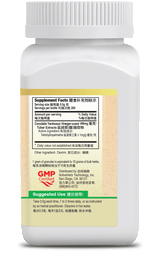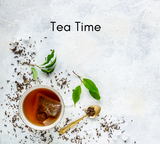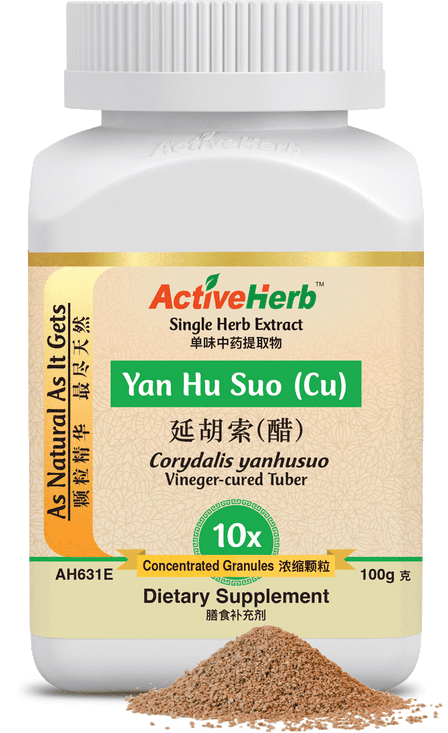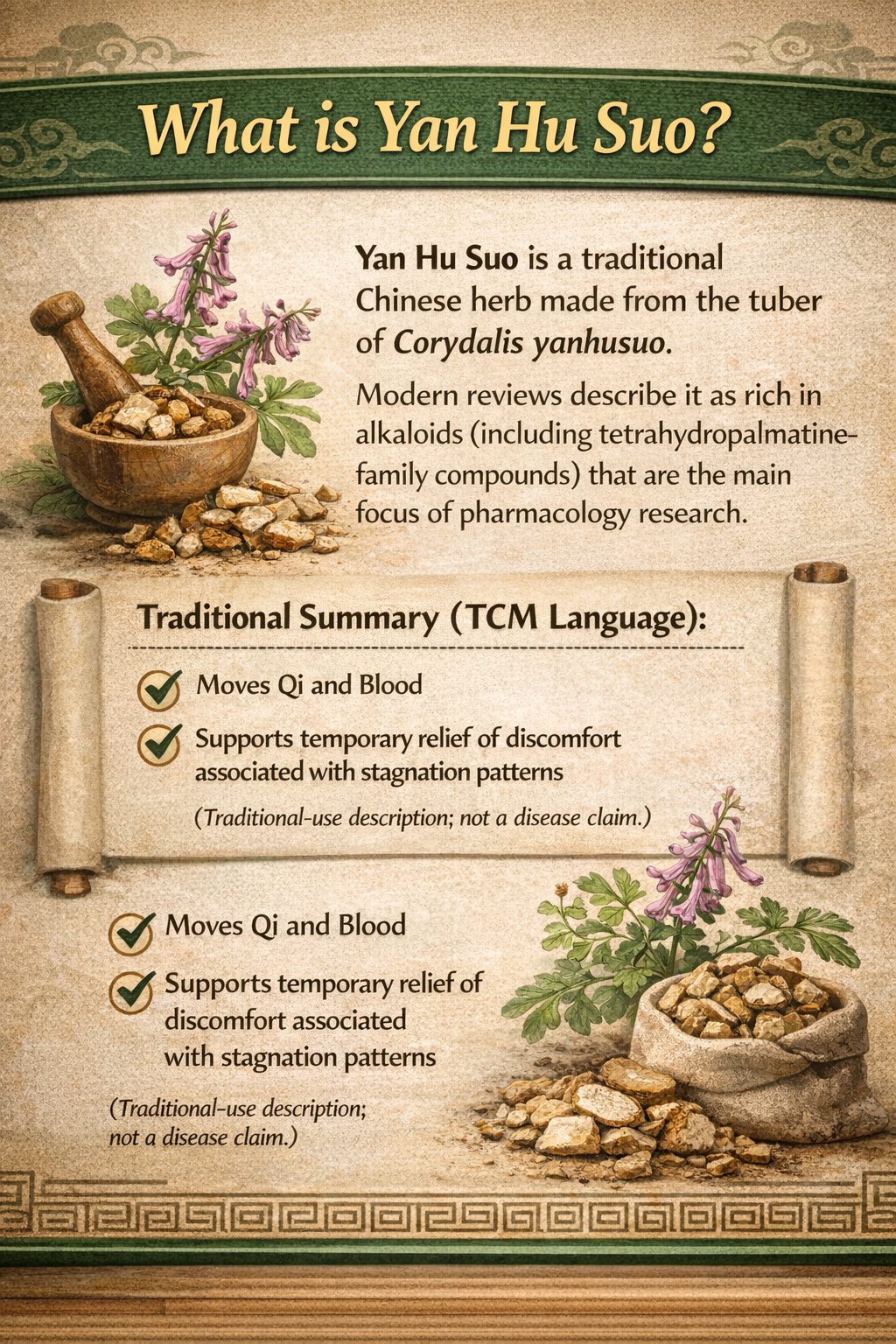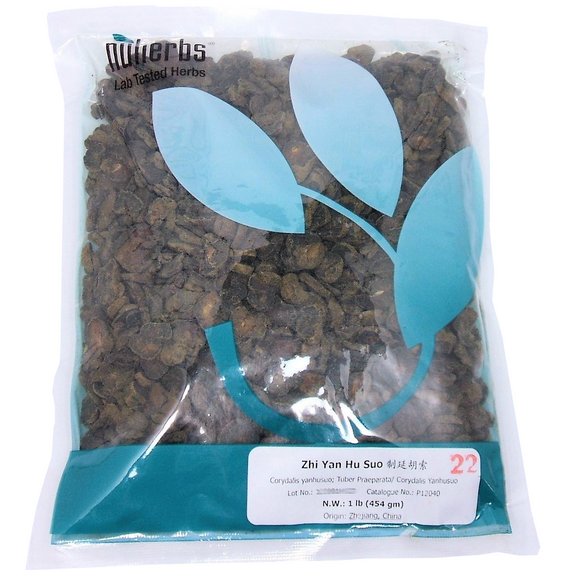Yan Hu Suo (Corydalis) Vinegar-Cured Granules 10:1 | ActiveHerb 100g
If you’re buying Yan Hu Suo (Corydalis yanhusuo), you’re probably not looking for herb trivia—you want to know what form this is, how strong it is, and how to use it correctly. These are vinegar-cured (Cu Zhi) 10:1 concentrated granules designed for fast prep: simply dissolve in hot water and drink. Vinegar processing is a traditional preparation method, and modern research shows processing can change Corydalis’ alkaloid profile—one reason practitioners often specify the processed form. Use as directed by a qualified practitioner.
This page gives clear answers—plus research links and safety notes.
Quick Summary On Yan Hu Suo
-
Herb: Yan Hu Suo (延胡索) — Corydalis yanhusuo tuber/rhizome
-
Form: Vinegar-processed (“Cu Zhi”) concentrated extract granules
-
Concentration Ratio: 10xActive Ingredients: Tetrahydropalmatine ≥ 1 mg/gOther Ingredients: Dextrin
-
Traditional TCM properties: Acrid, bitter, warm; classically described in patterns involving Qi/Blood stagnation (traditional language)
1) What is Yan Hu Suo?
Yan Hu Suo is a traditional Chinese herb made from the tuber of Corydalis yanhusuo. Modern reviews describe it as rich in alkaloids (including tetrahydropalmatine-family compounds) that are the main focus of pharmacology research.
Traditional summary (TCM language):
-
Moves Qi and Blood
-
Supports temporary relief of discomfort associated with stagnation patterns
(Traditional-use description; not a disease claim.)
2) What does “vinegar-cured” mean (and why it matters)?
“Vinegar-cured” is commonly referring to vinegar processing (Cu Zhi)—a traditional preparation method used for Yan Hu Suo.
Why shoppers should care: processing changes the alkaloid profile. A PubMed Central paper specifically examining vinegar/wine processing of Corydalis yanhusuo reports that vinegar processing can influence alkaloid content and discusses why vinegar-processed product has been favored traditionally.
A broader review on Corydalis processing also discusses vinegar as an auxiliary material used in processing and summarizes pharmacology/safety considerations across different processing methods.
Bottom line: “Vinegar-cured” isn’t a marketing adjective—it’s an identifiable processed form with a long history in TCM and measurable chemical differences.
3) What “10:1 / 10x” means in plain English
100 g extract granules are equivalent to 1000 g (2.2 lb) dried raw herb.
4) How to Use Yan Hu Suo Concentrated Granules
Simple directions
-
Measure the amount recommended by your practitioner (or follow the label).
-
Dissolve in hot water, stir well until fully mixed.
-
Drink warm. Many people take herbal granules between meals (common practice).
Dosage
-
0.5 g each time, 1–2 times per day, or as directed by an herbal practitioner.
-
Dissolve in hot water or mix into yogurt.
-
Consult your healthcare professional for correct dosage.
5) Safety, interactions, and who should avoid it
Avoid use (unless directed by a qualified professional)
-
Pregnancy / nursing
Use extra caution if you take:
-
Sedatives / sleep medications (possible additive drowsiness)
-
Anticoagulant / antiplatelet medications
-
Blood pressure medications (use clinician guidance)
A consumer-medical reference page notes interaction cautions including anticoagulant/antiplatelet drugs.
Common side effects (dose-dependent)
Some people may experience drowsiness, dizziness, nausea, or fatigue, especially with higher servings or sensitivity.
Stop use and seek medical advice if you have unusual symptoms.
6) Research
DHCB and pain signaling (preclinical)
A widely cited 2014 paper isolated dehydrocorybulbine (DHCB) from Corydalis yanhusuo and explored its analgesic activity and dopamine receptor involvement in animal models.
Processing matters (vinegar vs wine)
A PubMed Central study examined how vinegar/wine processing influences Corydalis alkaloids and discusses why vinegar-processed product is traditionally favored.
Comprehensive review
A modern review summarizes Corydalis’ constituents and pharmacology and notes that alkaloids are the major bioactive class studied.
Trust note: Much of the strongest mechanism evidence is preclinical. Real-world outcomes depend on the person, preparation, and practitioner guidance.
7) Comparison
Which Corydalis form should you choose?
Vinegar-cured 10:1 granules (this product)
-
Best for: convenience + fast prep
-
Good for: people who don’t want to decoct
-
Manufacturer equivalency: 100g ≈ 1000g raw herb
Raw slices / whole tuber
-
Best for: traditional decoctions and formula-building
-
Tradeoff: time + equipment
Powder
-
Best for: capsules
-
Tradeoff: taste and GI tolerance can vary
8) FAQs
1) What is Yan Hu Suo?
A traditional Chinese herb from Corydalis yanhusuo tuber, widely studied for its alkaloids.
2) What does vinegar-cured mean?
It refers to vinegar processing (Cu Zhi), a traditional method that can change alkaloid content.
3) What does 10:1 mean for these granules?
ActiveHerb states 100g granules ≈ 1000g dried raw herb.
4) How do I take the granules?
Dissolve the recommended serving in hot water, stir, and drink warm.
5) Are these granules filler-free?
Other Ingredients: Dextrin
6) Can Yan Hu Suo make you sleepy?
Some users report drowsiness; use caution with sedatives.
7) Can it interact with medications?
Caution is commonly advised with blood thinners/antiplatelet drugs and other medications; consult a clinician.
8) How should I store it?
Seal tightly; store cool and dry away from moisture and heat.
9) How long does 100g last?
It depends on serving size.
10) Is this the same as “DHCB”?
DHCB is one studied constituent; herbal products contain multiple alkaloids.
9) Internal links
What No One Tells You About Chinese Herbs (7 Common Mistakes + Fixes)
10 Vital Medicinal Herbs That Work (Free Ebook)
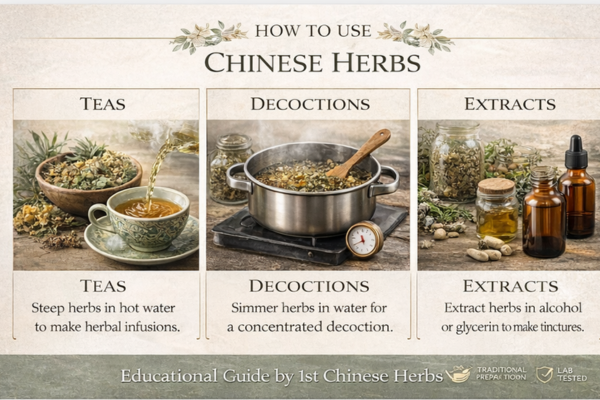
Check out our How to Use Bulk Herbs page to see how to use herbs correctly.
Traditional Chinese Herbs
Chinese Traditional herbs should be regarded as an added feature to modern western healthcare, and not as a replacement. Chinese traditional herbs (Teas) emphasize harmony, and balance.
ActiveHerb and their comment to purity
Most comprehensive and stringent testing standard.
ActiveHerb is the only company whose granules are free of 278 pesticides and herbicides. These test results, along with other tests such as those for heavy metals, are provided in the Certificate of Analysis (COAs) for each item and every batch.
Reference:
Review: Analgesic properties + alkaloids overview (YHS/Corydalis) (PMC)
https://pmc.ncbi.nlm.nih.gov/articles/PMC8704877/
Processing + phytochemistry/pharmacology/safety summary (includes vinegar processing discussion) (PMC)
https://pmc.ncbi.nlm.nih.gov/articles/PMC8739176/
Advances in phytochemical & modern pharmacological studies of Corydalis (broad compound + activity review) (PMC)
https://pmc.ncbi.nlm.nih.gov/articles/PMC7170387/
https://www.americandragon.com/Individualherbsupdate/YanHuSuo.html
https://www.ncbi.nlm.nih.gov/pmc/articles/PMC8739176/
https://en.wikibooks.org/wiki/Traditional_Chinese_Medicine/Usage_Of_Single_Herbs
https://www.scribd.com/document/597690638/Top-8-Pain-Herbs-eBook




